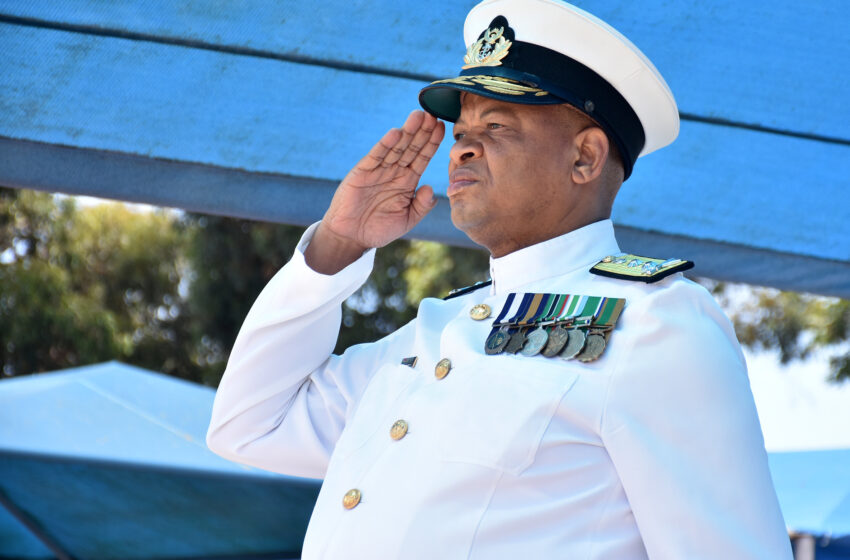South Africa Navy faces crisis: Vice Admiral warns of Treasury ‘sabotage’

Vice Admiral Lobese
South Africa’s maritime defence is under severe threat, according to the country’s top naval commander. Vice Admiral Monde Lobese has accused the National Treasury of effectively sabotaging the South Africa Navy through relentless budget cuts, warning that national security and the integrity of South Africa’s borders are now at risk.
In explosive public statements this week, Lobese painted a grim picture of the South African Navy’s declining operational capacity, blaming chronic underfunding for the deterioration of the country’s maritime security.
Treasury Cuts Spark Accusations of Sabotage
In a damning rebuke of the National Treasury, Vice Admiral Lobese claimed that the defence force’s budget has been systematically eroded, to the point that South Africa now faces a “clear and present danger” at sea. He warned that the country’s naval fleet is increasingly unable to patrol or respond to maritime threats effectively.
According to Lobese, the Treasury’s failure to fund vital naval operations amounts to institutional sabotage, putting the South African National Defence Force (SANDF) in a precarious position and undermining national security efforts.
“They are sabotaging the SANDF… they are sabotaging the country,” Lobese declared in comments, escalating what has been a long-simmering rift between military leadership and financial authorities.
Fleet Readiness at an All-Time Low
The South Africa navy, once regarded as a strategic force on the continent, is now struggling with a dramatic reduction in fleet availability. Lobese confirmed that only three ships are currently operational out of an originally larger fleet, significantly reducing the Navy’s ability to perform routine patrols, secure maritime borders, and deter illicit activity in the country’s vast territorial waters.
This alarming decline was echoed during his address to Parliament’s Joint Standing Committee on Defence, where he stressed that “the navy is bleeding” and that the shortage of funding has rendered it nearly powerless.
READ ALSO
SASSA payment date: Fourth date added for August amid review backlog
SARS launches e-filing virtual waiting room…. here’s all you should know
Maritime Security Threats Escalate
As global interest in Africa’s shipping routes and maritime resources grows, South Africa’s ability to protect its exclusive economic zone (EEZ) and strategic trade corridors is seen as critical. Yet, with piracy, illegal fishing, drug smuggling, and trafficking on the rise in the region, the Navy’s inability to respond effectively could open the floodgates to international security breaches.
“The Navy is the first line of defence for a coastal country like South Africa,” Lobese said. “Without us, our ports, trade routes, and even sovereignty become vulnerable.”
Broader SANDF Challenges and Political Fallout
The Navy’s struggle mirrors a broader crisis across the SANDF, where budgetary constraints have led to outdated equipment, poor morale, and weakened defence readiness. Defence experts have long warned that without significant reinvestment, South Africa’s armed forces will no longer be able to carry out their constitutional mandate.
Lobese’s comments are likely to escalate tensions between the Department of Defence and the Treasury, which has argued that the defence budget must be balanced against pressing domestic needs such as healthcare, education, and energy.
Is There a Way Forward?
Defence analysts say urgent intervention is needed. Proposals include public-private partnerships, regional defence collaborations, or reallocating funds within the existing SANDF budget to stabilise the Navy’s core functions. However, no clear solution has yet emerged.
As debate over the country’s financial priorities intensifies, Vice Admiral Lobese’s stark warning could signal a turning point. Without immediate action, South Africa’s maritime security risks deteriorating even further, leaving the country vulnerable at sea and in the global arena.

